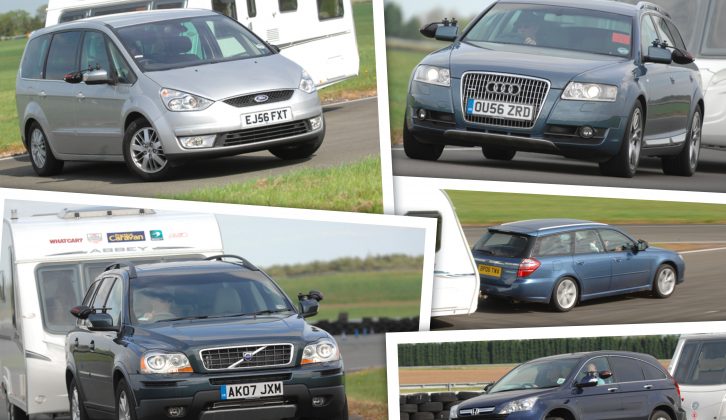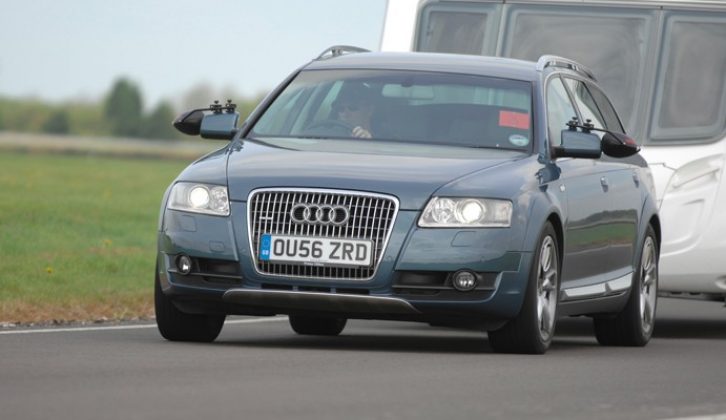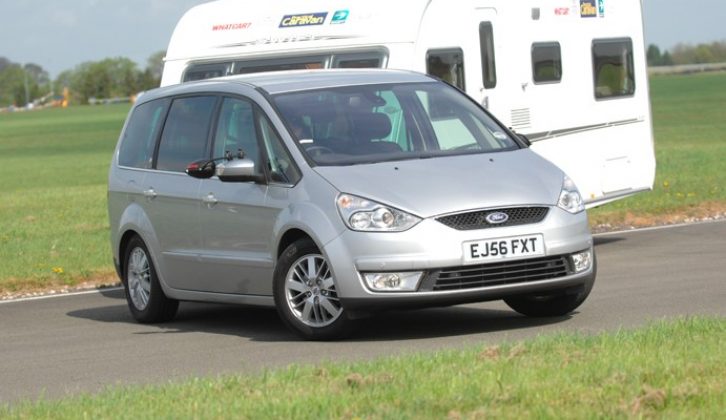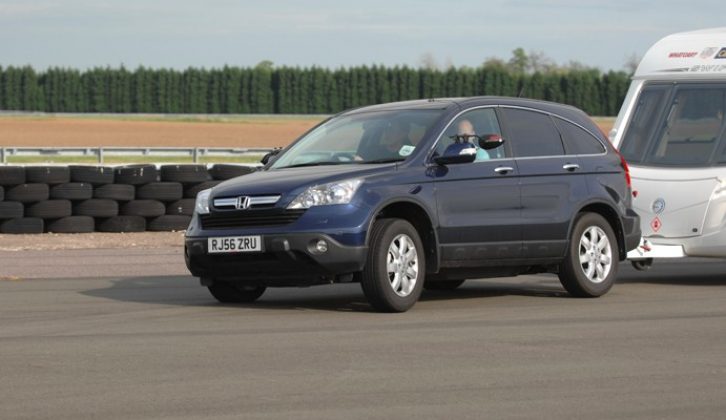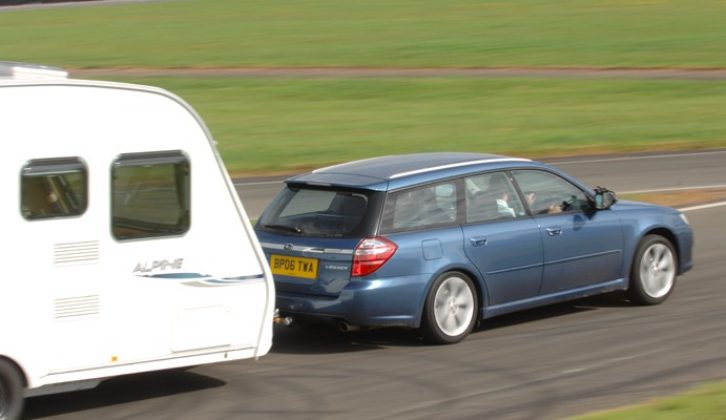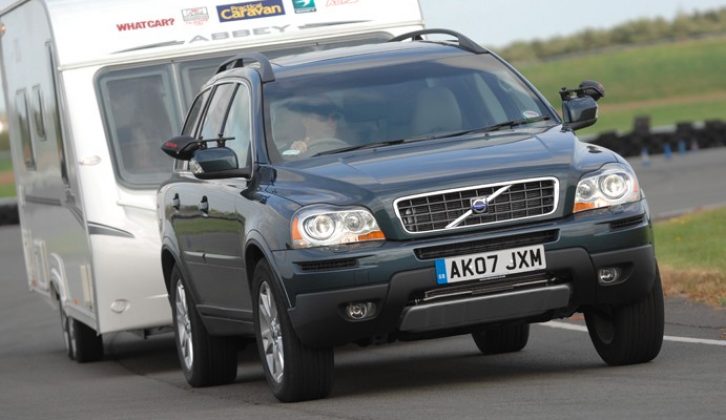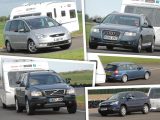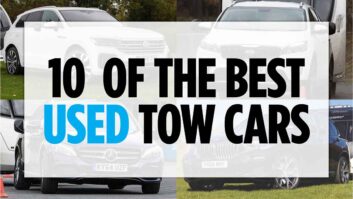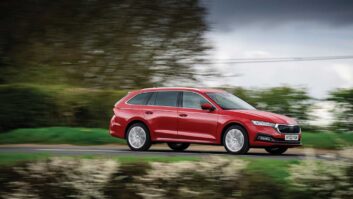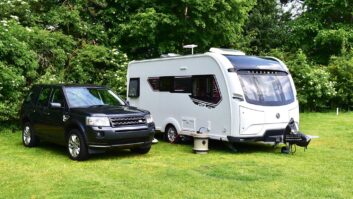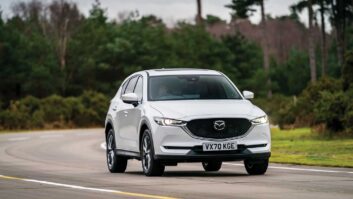Looking for a great value, highly competent tow car? You’ve come to the right place!
One of the big landmarks of 2016 has been the 10th year of the Tow Car Awards. Since our partnership with What Car? and The Camping and Caravanning Club began we’ve tested well over 400 cars, to find out what tow cars are Britain’s best.
A lot has changed since. We started out producing a separate magazine for the Tow Car Awards. Now the reviews are published inside Practical Caravan, on the dedicated Tow Car Awards website, and on Practical Caravan TV.
I’ve been looking back at the class of 2007. The cars we tested are now closing in on their 10th birthday. Which of the cars we rated highly then make good used buys today, and how much would you pay for them now?
Here are five of the cars tested for the original Tow Car Awards which still make smart buys.
Audi A6 Allroad 3.0 TDI Quattro Tiptronic
- Kerbweight: 1880kg
- 85% match: 1598kg
- Legal towing limit: 1900kg
- Price now: £7620 (56-plate, 100,000 miles)
A decade ago this car would have cost just over £36,000. According to What Car?‘s valuation service a 100,000-mile example will now cost less than £8000 from a dealer. That’s less than most new city cars.
The Audi A6 Allroad combines the practicality of an estate with four-wheel drive. Air suspension gives a comfortable ride, and means the car can be raised for heading off road or lowered for driving at speed on Tarmac.
In 2007 we found the Audi made a quick and stable tow car. However, if you’re buying today, make sure you find a car that’s been well looked after as faults won’t be cheap to fix.
Ford Galaxy 2.0 TDCi Ghia
- Kerbweight: 1821kg
- 85% match: 1548kg
- Legal towing limit: 1700kg
- Price now: £5740 (56-plate, 100,000 miles)
The Ford Galaxy was one of the best MPVs we tested 10 years ago. It’s still a cracking car now, especially if you can find one for less than £6000.
Inside, there’s space for seven in a roomy and flexible cabin. The Galaxy is better at carrying seven than most MPVs, including the slightly smaller Ford S-Max.
While the S-Max is a sharper drive than the Galaxy, there’s not a lot to choose between them as tow cars. Both are stable at speed, although they can struggle with hill starts in wet weather.
Honda CR-V 2.2 i-CTDi ES
- Kerbweight: 1660kg
- 85% match: 1411kg
- Legal towing limit: 2000kg
- Price now: £5945 (56-plate, 100,000 miles)
We were thoroughly impressed by the Honda CR-V when we tested it in 2007. Not only did it tow well, with strong performance from the refined 2.2-litre diesel engine, we found it made a comfortable solo drive, too, with a high-up driving position and a roomy cabin.
It was the CR-V’s practicality which earned the highest scores. The large boot swallowed lots of touring kit and was easy to load.
Running costs should be low, thanks to the economical engine. Listen out for a rattling noise from behind the dashboard, which could indicate a problem with the air-con, and a squeaking noise from the clutch could mean it’s on the way out. But for the most part these are reliable cars.
Subaru Legacy Sports Tourer 2.0R
- Kerbweight: 1415kg
- 85% match: 1203kg
- Legal towing limit: 1600kg
- Price now: £2790 (06-plate, 100,000 miles)
I’ve got a big soft-spot for this generation Subaru Legacy. It was fun to drive, good looking and a stable tow car. On the downside, the 2.0-litre petrol engine is short on pulling power for towing duties, but so long as you have a light caravan it’s up to the job.
The big plus for four-season caravanners is the Legacy’s four-wheel-drive transmission. It makes it a more capable all-weather tow car than most other 10-year-old estate cars. There’s plenty of luggage space, too.
Subarus are usually reliable, although What Car? and Warranty Direct report some engine problems with the Legacy. Be aware that repair costs are likely to be higher than for an equivalent Ford or Vauxhall.
Volvo XC90 D5 SE Geartronic
- Kerbweight: 2069kg
- 85% match: 1759kg
- Legal towing limit: 2250kg
- Price now: £8275 (07-plate, 100,000 miles)
People get very excited about the new Volvo XC90, but the old model remains a very capable and practical seven-seat SUV. In many respects the original Volvo XC90 was ahead of its time, offering a refined drive on the road and MPV-like flexibility in the cabin.
It scored well when we tested it back in 2007. The D5 diesel engine provided enough performance to cope with a big twin-axle caravan, although the Volvo wasn’t as fast as some of the other big 4x4s tested that year. But it was strong enough to hold 60mph all day, and to pull away on a steep hill.
Check that any XC90 you are thinking of buying has had all necessary recall work carried out – the Volvo has been subject to a number of recalls during its life. But in most respects the Volvo should prove reliable.
Which of the cars we rated highly then make good used buys today?
